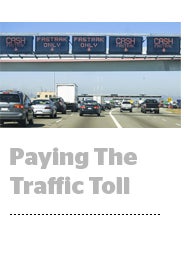 While publishers deliver an online ad in fractions of a second, the buyer typically doesn’t pay for 90 days or more. That’s not a relationship that advantages the sell side.
While publishers deliver an online ad in fractions of a second, the buyer typically doesn’t pay for 90 days or more. That’s not a relationship that advantages the sell side.
“You have to pay payroll right away and you have to pay supply sources right away, so there’s this working capital friction in ad tech,” said Jed Simon, FastPay founder and CEO.
Companies like FastPay front cash so publishers get paid immediately – and take a cut of the overall spend once it comes through. To do this lending, FastPay integrates or comes to agreements with demand sources – some of its largest being Facebook, Google and SpotX.
Now, FastPay is scaling up. On Monday, it debuted a partnership with the Japanese investment giant Hitachi to begin offering enterprise lending deals of more than $10 million.
“Anyone in the business of lending money spends most of their time thinking about risk and how to properly price it and manage it,” said Tim King, executive director of the corporate lending group at Hitachi.
And because most of the money FastPay receives comes from global brands and agencies, it has a strong credit profile, King added.
FastPay’s pitch to young digital media companies centers on avoiding the need for successive investment rounds or credit lines from traditional banks or financial companies that often see digital media as a risky place to extend cash.
Woven Digital, a media and branded content portfolio geared toward young men, worked with FastPay and “raised a fraction of what many competitors did and … avoided credit lines from institutional banks that felt onerous,” said co-founder and COO Michael Laur.
When Woven worked with financial institutions and Silicon Valley investors, Laur learned they didn’t understand the scale of digital audience growth or the difference between quality and non-quality ad-buying streams.
Digital media requires specific financial services from a company that is part and parcel of ad tech, Simon said, and it’s impossible to shorten the time between ad campaign activation and payment because the buyer still needs to reconcile results. Factors like viewability, attribution and traffic quality disputes solidify the need for buyers to defer payment.
If, however, a publisher’s audience doubles in one quarter but it doesn’t get paid until the next quarter, it’s hard to sustain growth.
“We knew we could grow considerably, but it would have meant constantly raising rounds and raising valuations,” Laur said. “We knew that if we wanted to grow, we needed to be carrying paper.”
Meanwhile, traditional financial services companies like Wells Fargo and Citi, which work with FastPay through their own investments and credit lines, aren’t going to embed themselves in the ad tech world. They also don’t want to expose themselves by lending cash to publishers for ad buys that may not come through.
FastPay absorbs that risk, though Simon says the company has historically only lost about six basis points (0.06%) on the billion and a half dollars it has lent to digital media.













